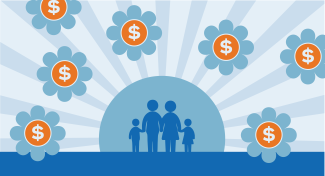
What are 5 ways Widows can cope after Death of Spouse?
💔 What are 5 ways Widows can cope after the Death of a Spouse?
Losing a spouse is an incredibly painful and life-altering experience. For many women, the grieving process is filled with overwhelming emotions, unexpected responsibilities, and deep loneliness.
While every widow’s journey is unique, here are 5 powerful ways that many find healing and strength during the most difficult time of their lives.
1. 👥 Seek Support from Friends, Family & Community
🔹 Build a Support Network:
Leaning on close friends and family can help relieve emotional and logistical burdens. Talking through memories, sharing meals, or simply having someone present makes a world of difference.
🔹 Join a Support Group:
In-person or online support groups connect widows with others who truly understand their loss. This shared experience helps reduce isolation and offers strength through community.
2. 🧠 Turn to Professional Counseling or Therapy
🔹 Grief Counseling:
A trained grief counselor can offer a safe, judgment-free space to process emotions, identify coping tools, and move forward at your own pace.
🔹 Cognitive Behavioral Therapy (CBT):
CBT helps reframe painful thoughts and develop healthier emotional responses, which can ease anxiety and promote healing.
3. 🕯️ Create Rituals and Memorials
🔹 Honor Your Loved One:
Rituals such as lighting a candle, creating a memory book, or visiting their favorite place allow widows to stay connected in a meaningful way.
🔹 Mark Special Dates:
Anniversaries and birthdays can be emotionally charged. Creating a new tradition or dedicating that day to honoring their memory can turn pain into purpose.
4. 🧘♀️ Engage in Self-Care & Wellness Practices
🔹 Physical Activity:
Gentle movement like walking, yoga, or dancing can relieve stress, release endorphins, and clear the mind.
🔹 Mindfulness & Meditation:
These practices help widows stay present, soothe anxiety, and soften emotional pain during grief’s toughest moments.
5. 🌱 Find New Purpose or Meaning
🔹 Reconnect with Passion:
Whether it's volunteering, exploring a new hobby, or championing a cause your spouse cared about, discovering renewed purpose brings light back into life.
🔹 Embrace Spirituality:
Faith and spiritual practices can provide hope, connection, and the comfort of believing in something greater or a continued bond with your loved one.
💬 Final Thought
Grief doesn’t follow a straight path. Healing is slow, deeply personal, and often involves using a blend of the above strategies over time.
One inspiring resource for widows is the Modern Widows Club, which offers peer support, encouragement, and education for women navigating widowhood.
🤝 Need Support with the Financial Impact of Loss?
If you or someone you know is seeking independent, trusted financial advice after the loss of a spouse, I invite you to schedule a confidential consultation:
📅 Book a Free Zoom or Phone Meeting
Together, we can create clarity, confidence, and peace of mind taking one step at a time.
